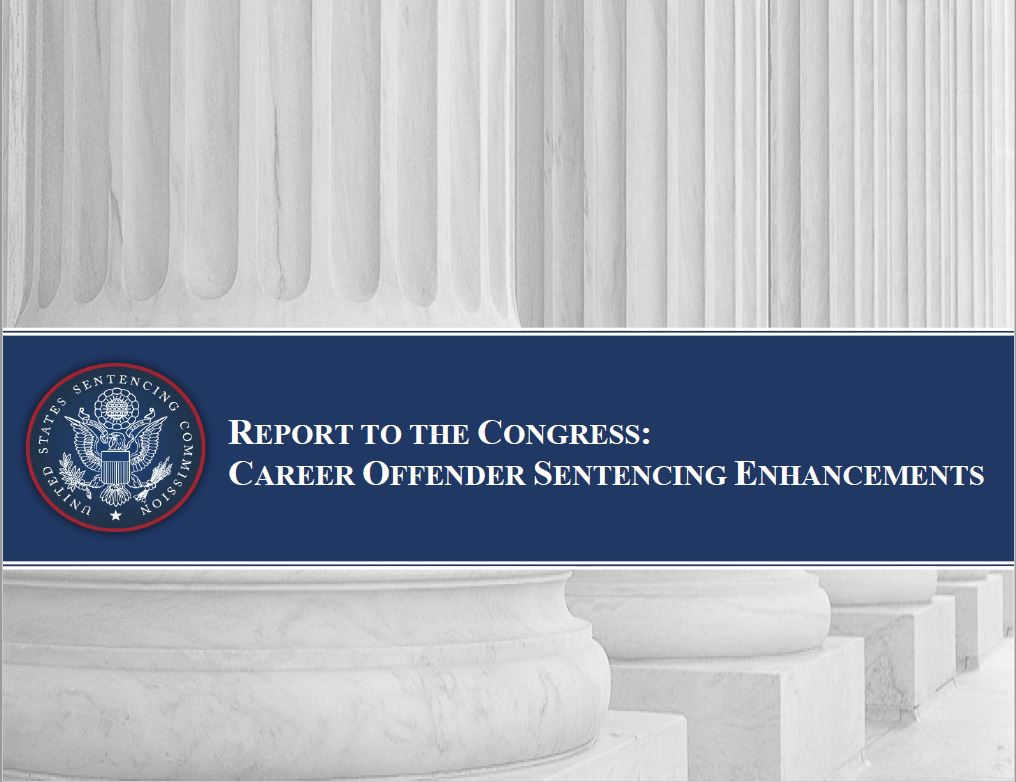Career Offender Sentencing Enhancements (July 2016)

- Full Report (browse by section below)
- Report At A Glance
- Press Release
- Quick Facts on Career Offenders (backgrounder)
Executive Summary
Section One
Section One provides an introduction to the report and highlights the Commission's recommendations.
Section Two
Section Two provides a historical overview of the Career Offender guideline (section 4B1.1).
- The Career Offender Directive
- The Career Offender Directive in Context
- The Career Offender Guideline
Section Three
Section Three examines federal sentencing data to answer, "Who are Career Offenders and how are they sentenced?"
- Offender Demographics and Offense Characteristics
- Impact of Career Offender Status
- Sentences Relative to the Guideline Range
- Punishment
Section Four
Section Four highlights the Commission's recommendation that the career offender guideline focus on violent offenders.
- The Commission’s Multi-Year Study
- Pathways to Career Offender Status
- Current Sentencing Practices
- Recidivism Rates
- Takeaways and Recommendations
- Statutory Proposal
Section Five
Section Five highlights the Commission's recommendation that Congress enact a uniform definition of "crime of violence" for federal criminal law applications.
- Federal Statutes Presently Contain Multiple Definitions
- The Need to Reform Recidivist Enhancement Definitions
- The Commission’s Crime of Violence Definition
- Takeaways and Recommendations
Endnotes
Appendix
